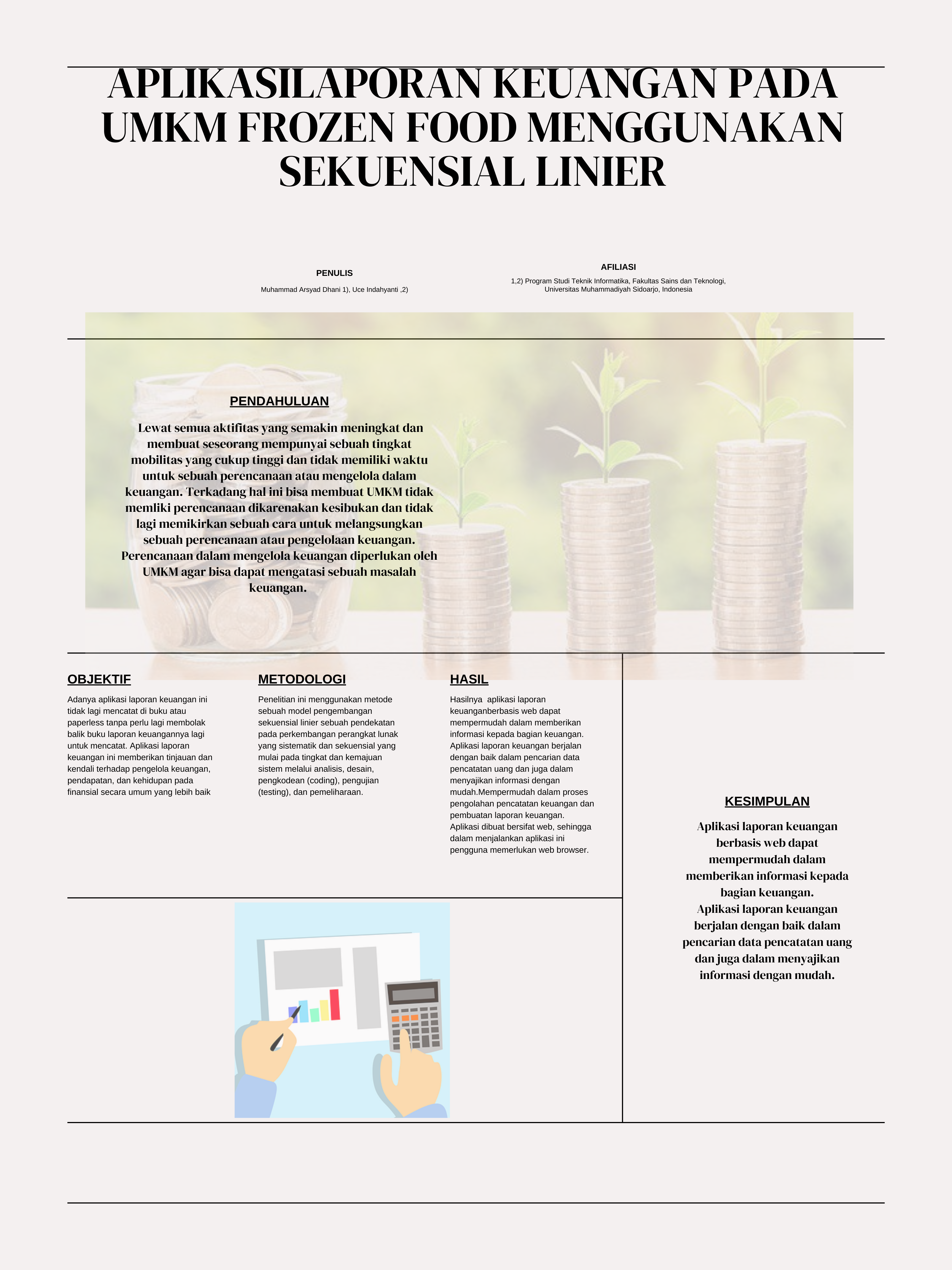Application of Financial Reports on Frozen Food SMEs Using Linear Sequential
Aplikasi Laporan Keuangan pada UMKM Frozen Food Menggunakan Sekuensial Linier
DOI:
https://doi.org/10.21070/pels.v2i2.1220Keywords:
application, financial report, linear sequential, SMEs, web-basedAbstract
Planning in managing finances is needed by SMEs in order to be able to overcome a financial problem in everyday life. The existence of a financial report application no longer records in a book or paperless without the need to flip through the financial report book again to take notes. This financial report application provides a better overview and control of financial management, income, and life in general financially and provides information and meets the needs of financial management in SMEs in their operational activities. This study uses the method of a linear sequential development model, an approach to systematic and sequential software development that starts at the system level and progresses through analysis, design, coding, testing, and maintenance. As a result, web-based financial report applications can make it easier to provide information to the finance department. The financial report application works well in searching for money recording data and also in presenting information easily. Facilitates the process of processing financial records and making financial reports. The application is made web, so that in running this application the user requires a web browser.
Downloads
References
Ridwan S.Sundjaja & Inge Barlian. Edisi Keempat. Jakarta: Literata Lintas Media, 2003.
S. Musarofah, “Aplikasi Catatan Keuangan Penjualan Meubel Berbasis Android di Toko Sinar Baru Magelang,” J. Chem. Inf. Model., vol. 53, no. 9, pp. 1689–1699, 2013.
M. Taufan et al., “Sistem Informasi Keuangan Pada Dinas Perhubungan Kabupaten Lombok Tengah Berbasis Web,” vol. 2, no. 1, pp. 50–56, 2019.
M. Muhtar Sutrisna, “Aplikasi Pengelola Keuangan Pribadi dan Rumah Tangga Berbasis Android,” Apr. 2015.
K. Ujang Juhardi, “Sistem Pencatatan dan Pengolahan Keuangan Pada Aplikasi Manajemen Keuangan E-Dompet Berbasis Android,” JTIS, vol. 2, no. 1, pp. 2614–3070, 2019.
Pressman, Roger S. Rekayasa Perangkat Lunak Pendekatan Praktis Buku Satu. Andi Offset, 2002.
Ririn Arifah, “Pengembangan dan Analisis Sistem Informasi Keuangan Komite SMK Negeri 1 Klaten Berbasis Web,” p. 634, 2014.
Arief, M. Rudiyanto. Pemrograman Web Dinamis Menggunakan PHP Dan MySQL. Penerbit ANDI, 2011.
A. Maulana, A. Kurniawan, W. Keumala, V. R. Sukma, and A. Saifudin, “Pengujian Black Box pada Aplikasi Penjualan Berbasis Web Menggunakan Metode Equivalents Partitions (Studi Kasus: PT Arap Store),” J. Teknol. Sist. Inf. dan Apl., vol. 3, no. 1, p. 50, 2020.
U. Meriyanti et al., “Rancang Bangun Website E-Commerce Penjualan Sparepart Handphone CV. Indonesia Online Shop,” Sist. Inf., vol. 6, no. 1, p. 15, 2016.




